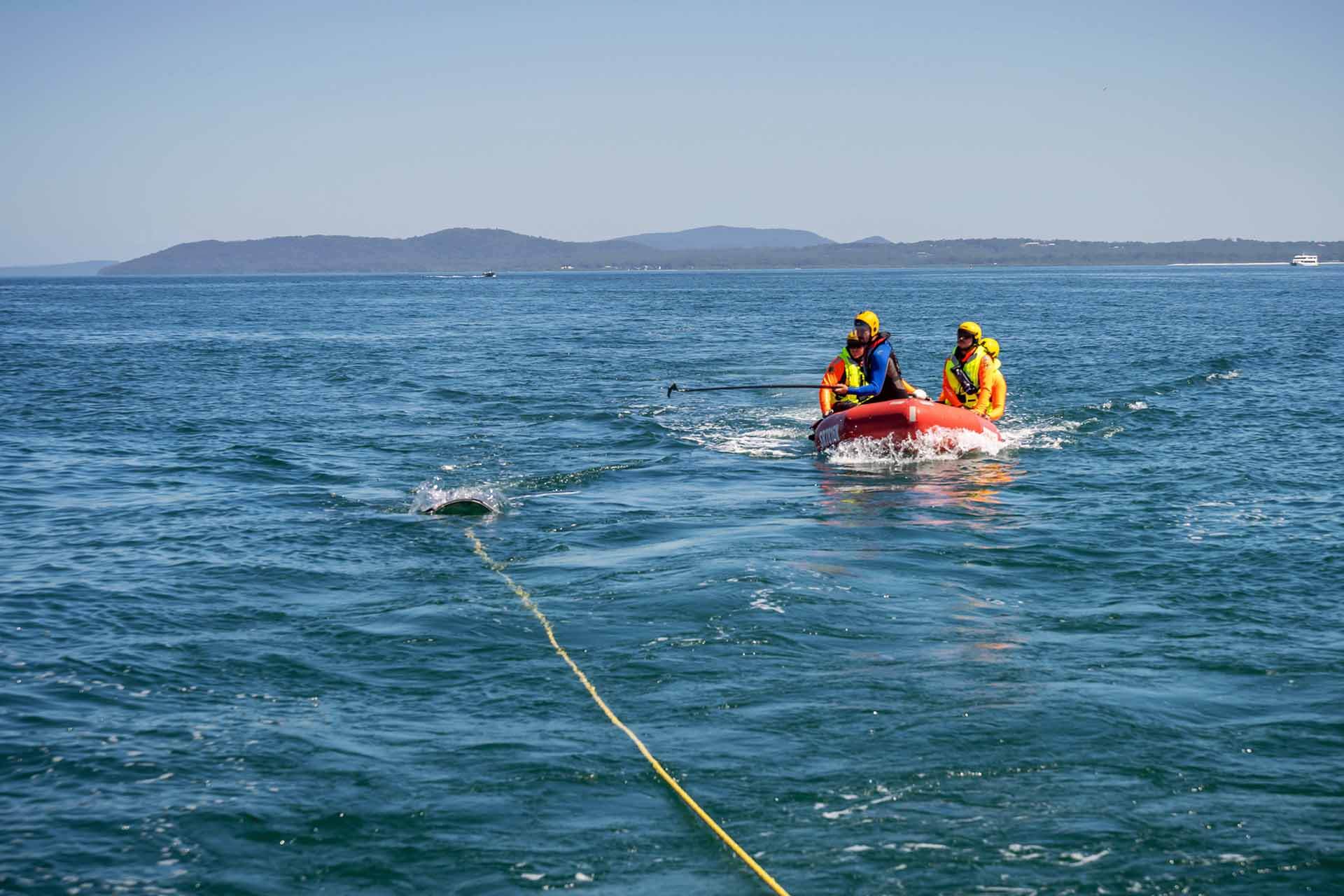NPWS hit the water for whale disentanglement training at Port Stephens
This Friday, April 11, National Parks and Wildlife Service (NPWS) teams will hit the water at Port Stephens to practice the critical and complex task of disentangling whales, ahead of the start of the annual humpback migration season.
The on-water training exercise is designed to improve skills and processes needed to safely free whales that become entangled in ropes, nets and other marine debris. Beyond technical training, the exercise also helps staff to develop skills in remaining calm, focused and staying safe when dealing with a panicked, powerful 30-tonne animal.
Each year, around 40,000 humpback whales migrate along the NSW coast, with a few dozen becoming entangled in fishing gear or marine debris. These entanglements can have devastating impacts on whale health and survival and responding swiftly and safely is critical.
The annual NPWS training refreshes skills for experienced responders while preparing new team members. Friday’s session will involve teams from the Hunter Central Coast and Greater Sydney regions, and is part of a broader program supported through the NSW Marine Estate Management Strategy.
Last year, 11 humpback whales were successfully freed from entanglements off the NSW coast. As most tangled whales keep swimming, sometimes at speeds above 5 knots (about 9kph), being able to relocate the whale quickly is critical. If it is safe to do so, we encourage the community to get photos and detail the exact GPS location.
Funding from the NSW Marine Estate Management Strategy has supported NPWS in training whale disentanglement teams stationed along the coastline. The training is conducted in close collaboration with Marine Rescue NSW, who provide skilled volunteers and vessels to ensure operations are carried out safely and effectively.
NPWS also works in partnership with ORRCA, Sea World Foundation, Gamay Rangers, the fishing industry, Department of Primary Industries and Regional Development (DPIRD), OceanWatch Australia and the Professional Fishermen’s Association (PFA) to reduce entanglement risks and build response capacity.
If you see a distressed or entangled whale, contact the NPWS on 13000PARKS (1300 072 757) or ORRCA on 02 9415 3333 immediately.
Quotes attributable to NPWS Team Leader Conservation, Doug Beckers
Whale-watching is an increasingly popular activity right along NSW’s Coast, and it’s humbling to know that a few loops of rope can bring down one of these huge, majestic animals.
If you do happen to spot an entangled whale, please report it to NPWS or ORRCA straight away – every minute counts.
National Parks now has the capacity to deploy whale disentanglement teams right along the Coast – but only when conditions permit. We need the right weather, not too much swell, and enough daylight hours to safely find the animal and complete operations.
Humpback whales are awesome creatures which can weigh between 30 and 40 tonne, so for your own safety and theirs, you need to keep your distance. All water craft must keep 100m from a whale, or 300m if a calf is present.

Whale disentanglement training, Port Stephens